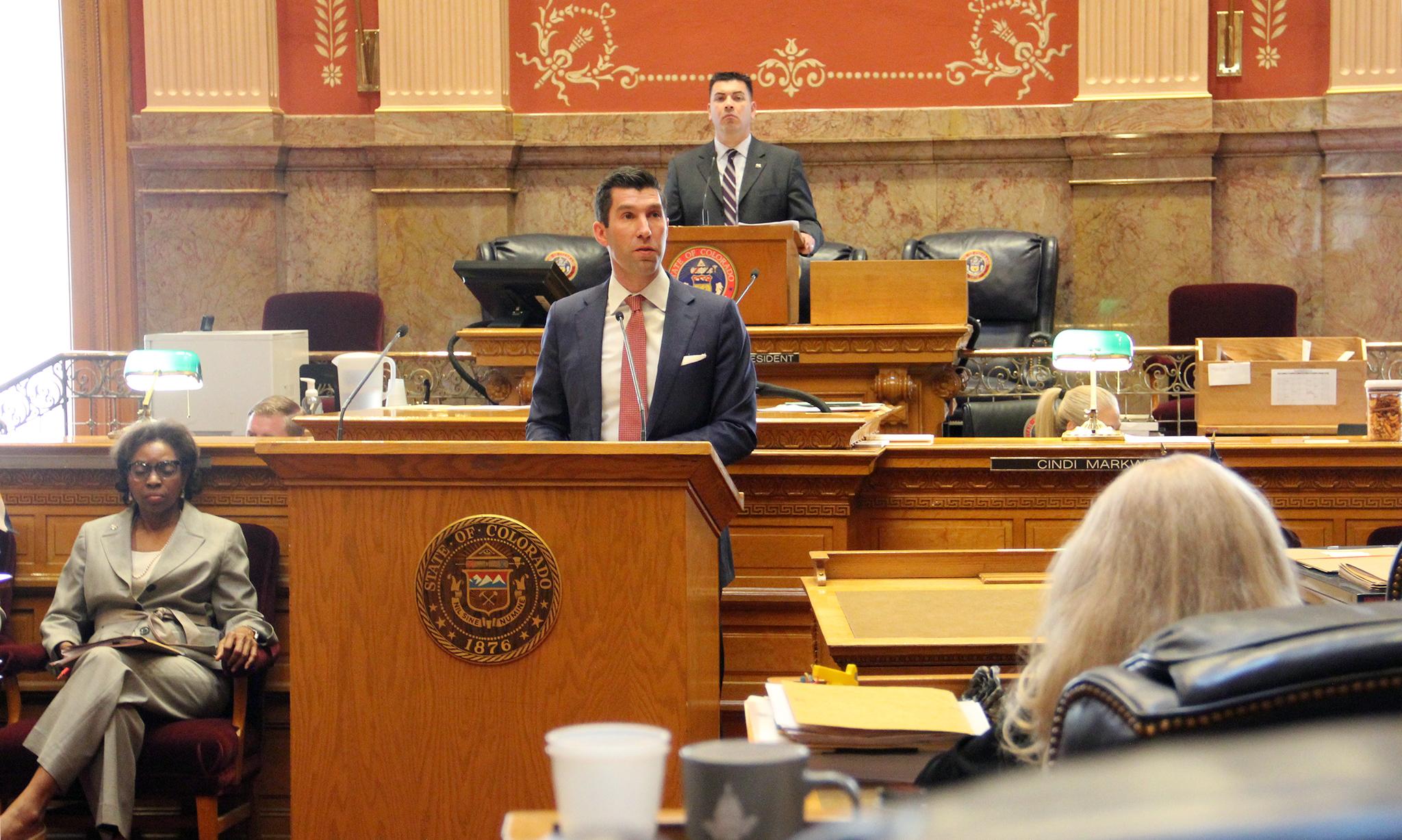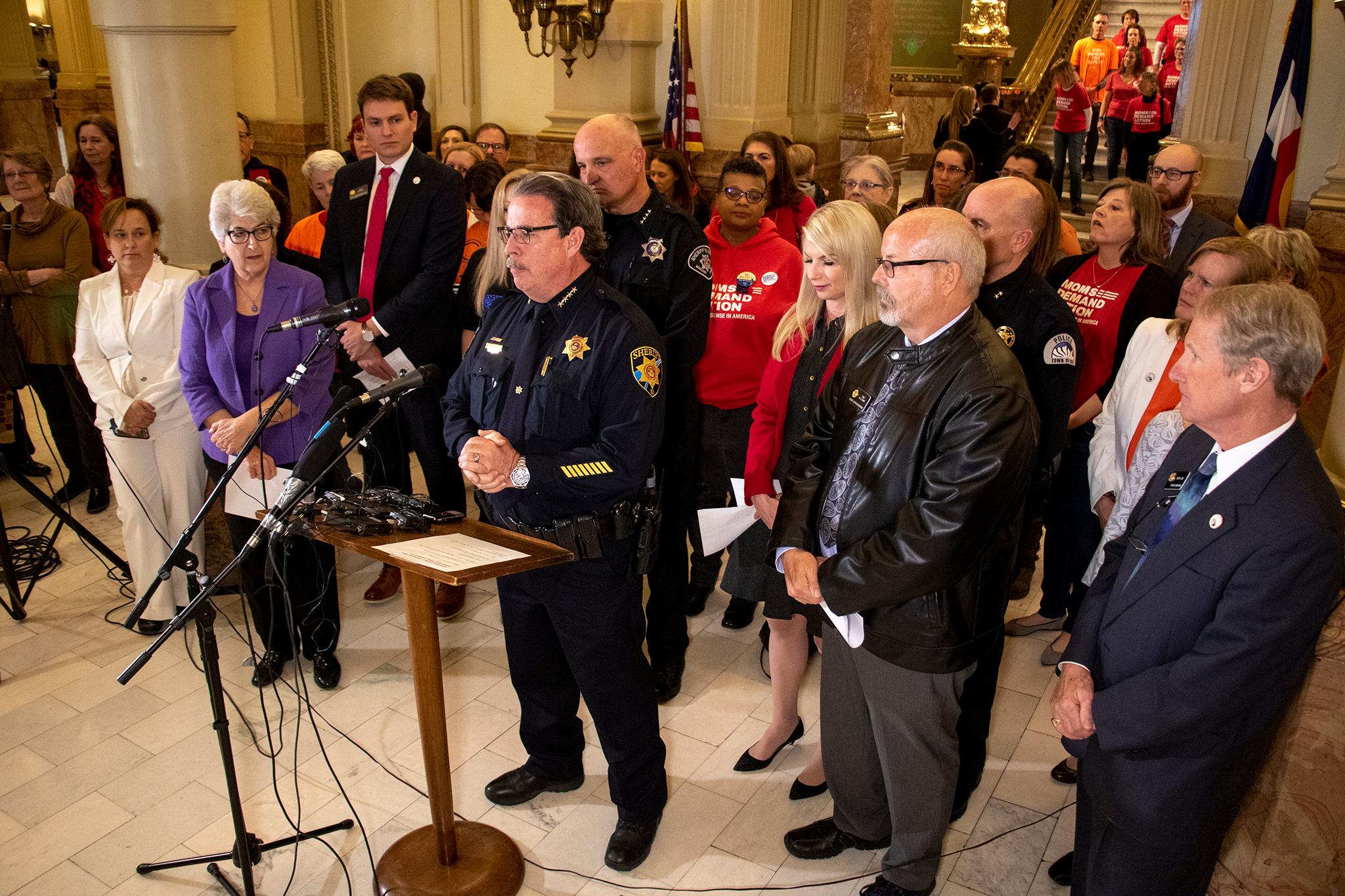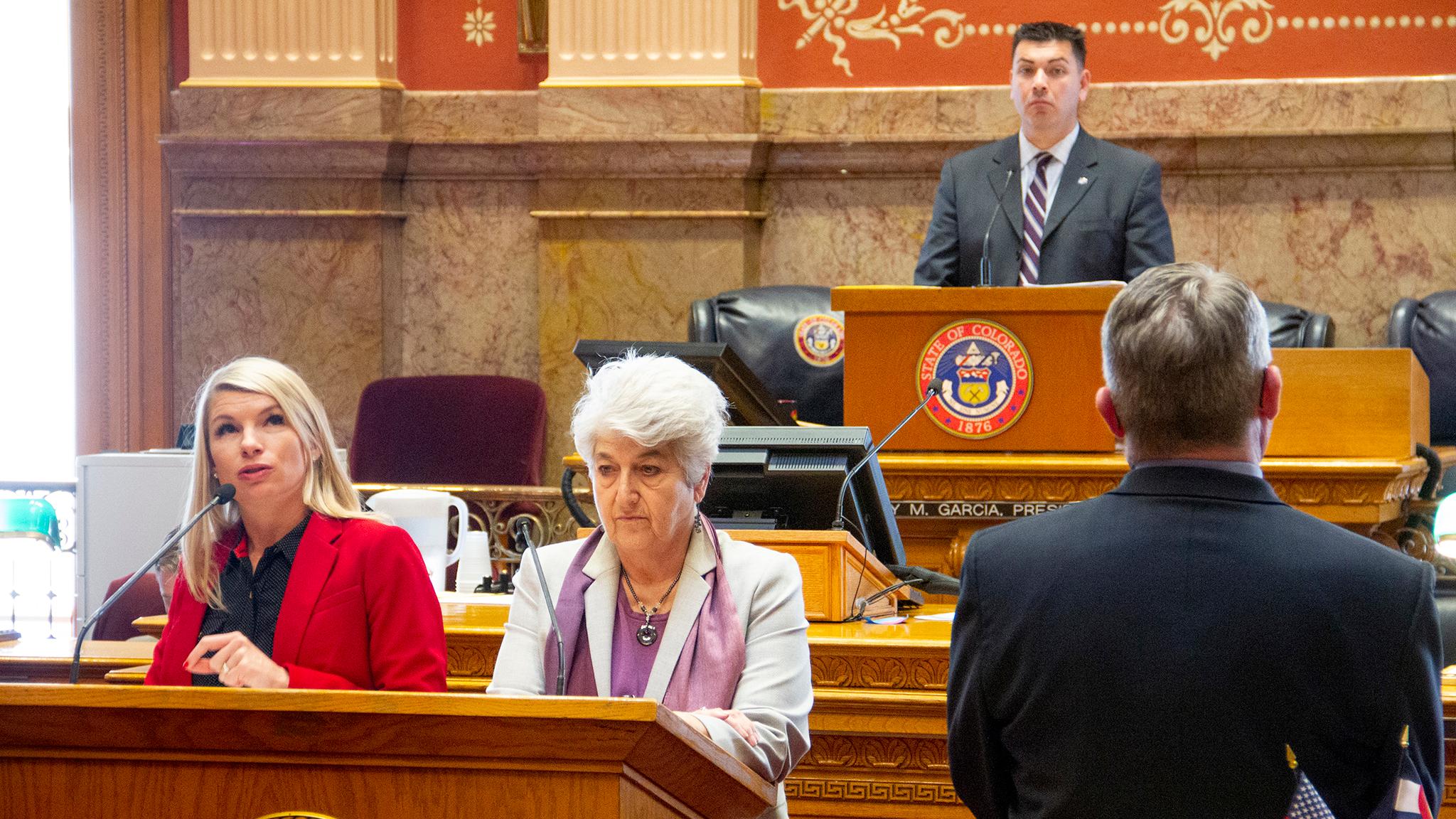The Senate on Thursday passed the red flag bill by the narrowest possible margin after Democratic Senate President Leroy Garcia joined Republicans in opposing the bill.
The final vote was 18-17, with all other legislators voting along party lines. The vote came after hours of debate in the Senate Chambers that started before noon Thursday.
The bill would allow for extreme risk protective orders, which would temporarily take guns away from a person a judge determined to be a threat to themselves or others. Republican lawmakers opposed the bill on Second Amendment grounds while suggesting a bipartisan solution was feasible.
Garcia, who represents Pueblo, voted no days after he settled speculation about his stance on the bill by telling his hometown newspaper he wouldn't support it.
The bill now moves closer to becoming law close to a year after a similar bill died in committee.

Republican lawmakers spoke in opposition to the bill, offering history lessons about the importance of gun rights. State Sen. Owen Hill of Colorado Springs said the legislation allows the government to overstep its bounds and violate the Constitution.
He called it "preemptive warfare" on citizens and said it would put police officers in danger.
"This legislation doesn't solve the problems it's intended to address," Hill said.
Since it was introduced, the red flag bill ratcheted up the tension between Democrats in the majority and Republicans in the minority. If you ask Republicans, it's an example of the overreach they warned their colleagues on the other side of the aisle about at the beginning of the session.
The bill's primary co-sponsor, state Sen. Brittany Pettersen of Lakewood, said the bill wasn't contentious or controversial outside the building. Pettersen said the bill creates a process for someone exhibiting "clear warning signs" that they're a danger to themselves or others. She urged support for the bill, along with co-sponsor Sen. Lois Court of Denver. She noted the difference of opinions in the chamber.
"I will restate that I firmly believe that extreme risk protection orders will save lives and is totally constitutional," Court said.
The bill honors a sheriff's deputy in name, but law enforcement officers are split on it.
Boulder County Sheriff Joe Pelle and Douglas County Sheriff Tony Spurlock spoke in support of the bill during a press conference last month. The bill's formal name -- Deputy Zackari Parrish III Violence Prevention Act -- recognizes a deputy who was killed by a mentally ill man in 2017.
"We know for a fact that if we can remove a gun from someone who is mentally ill and is thinking about suicide, that the chances of them committing suicide is so drastically reduced," Spurlock said last month. "Why wouldn't we want to do that? This is about saving lives."
Overall, though, law enforcement officers appear split. While some are advocating for it's passing, some jurisdictions are branding themselves Second Amendment "sanctuary" cities, meaning they support local sheriffs who would decline to enforce the law.
This week, unions representing police departments serving two of the state's biggest cities -- Aurora and Denver -- both issued statements opposing the bill.
"We stand with our members, sheriffs, and law-abiding citizens who oppose this legislation," the statement from Denver Police Protective Association read. "We encourage our elected officials to continue the conversation and include all stakeholders as we strive to keep our communities safe."

The Rocky Mountain Gun Owners, a "zero-compromise" gun rights advocacy group, previously called the bill dangerous. A press release last month said it was designed to "strip gun owners of their lawfully owned property, without due process."
Although a similar bill was introduced last year with bipartisan support, some high-profile Republicans backing the bill then said this version goes too far by placing the burden on people trying to get their guns back to prove they're stable enough.
"I've spent time with the drafters of the bill with proposed changes," said Republican District Attorney George Brauchler, who supported last year's version of the bill. "We can come up with a red flag bill that works for Colorado. This isn't it."
Democrats have another major party figure backing them at the Capitol. Gov. Jared Polis has signaled his intent to sign the bill, even if it means stoking the flames of nascent recall efforts. Attorney General Phil Weiser took things a step further by suggesting sheriffs who refused to enforce the law should resign.
The bill will head back to the House since the Senate made changes to the bill, according to the Denver Post.














